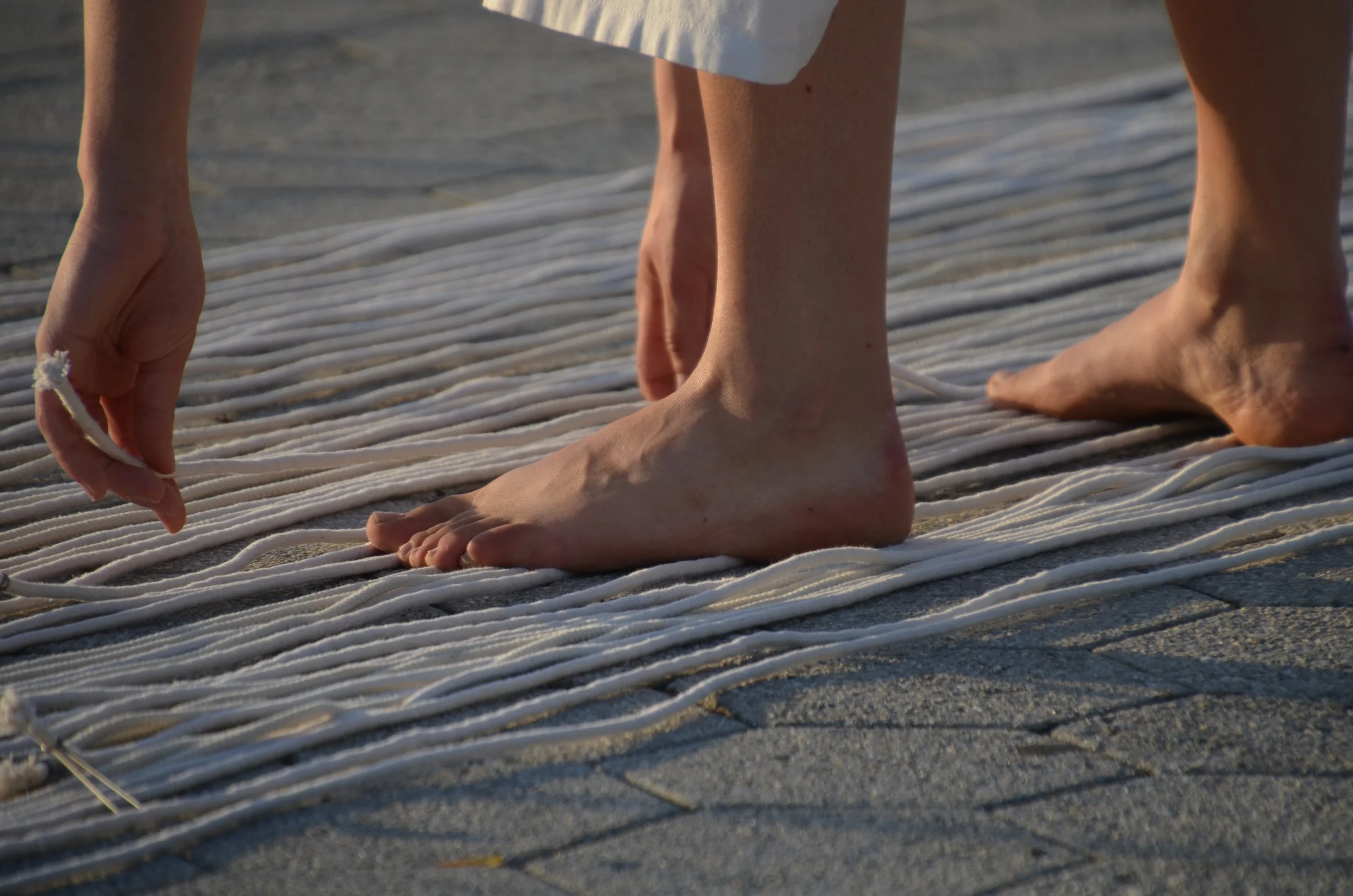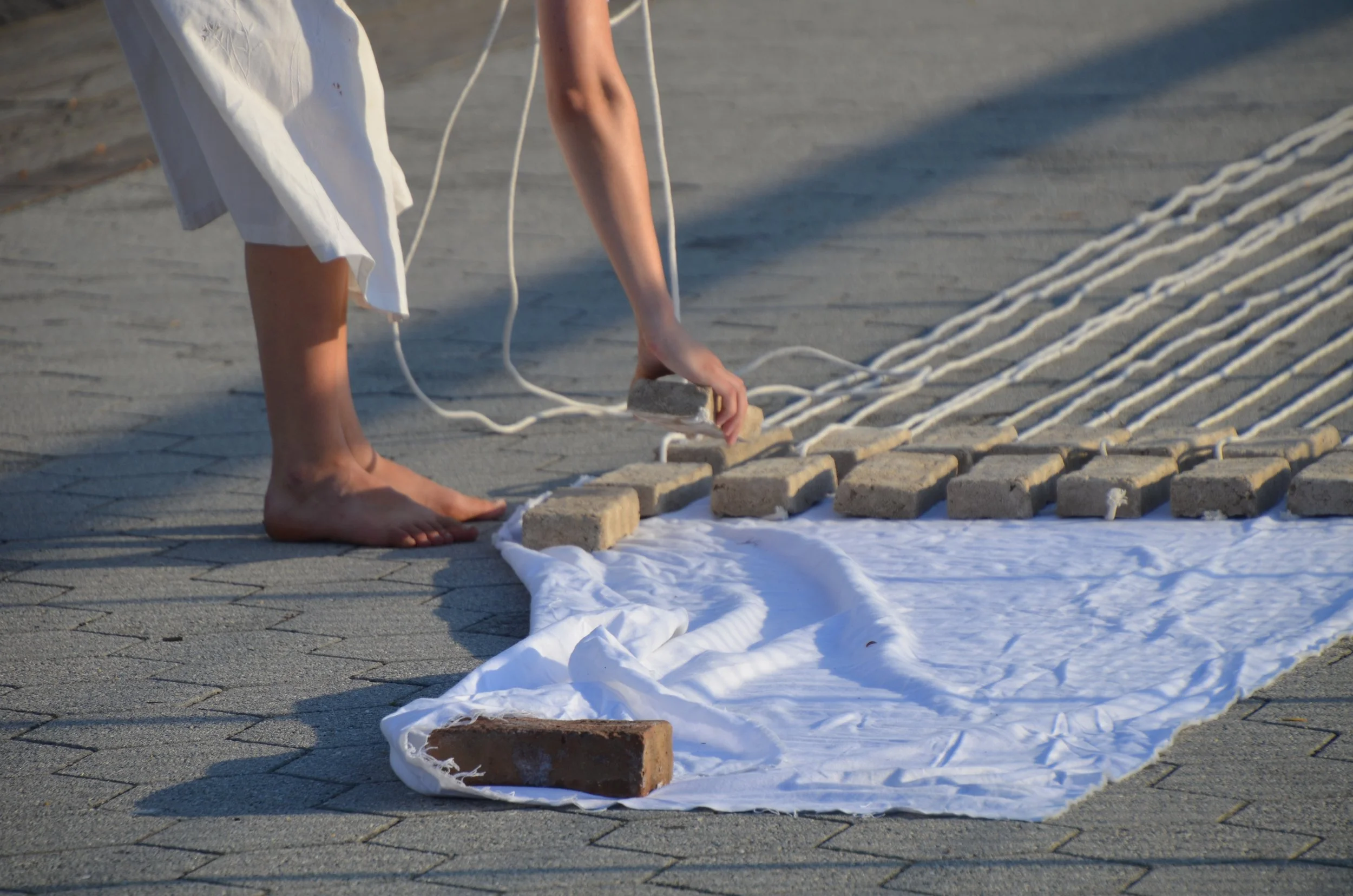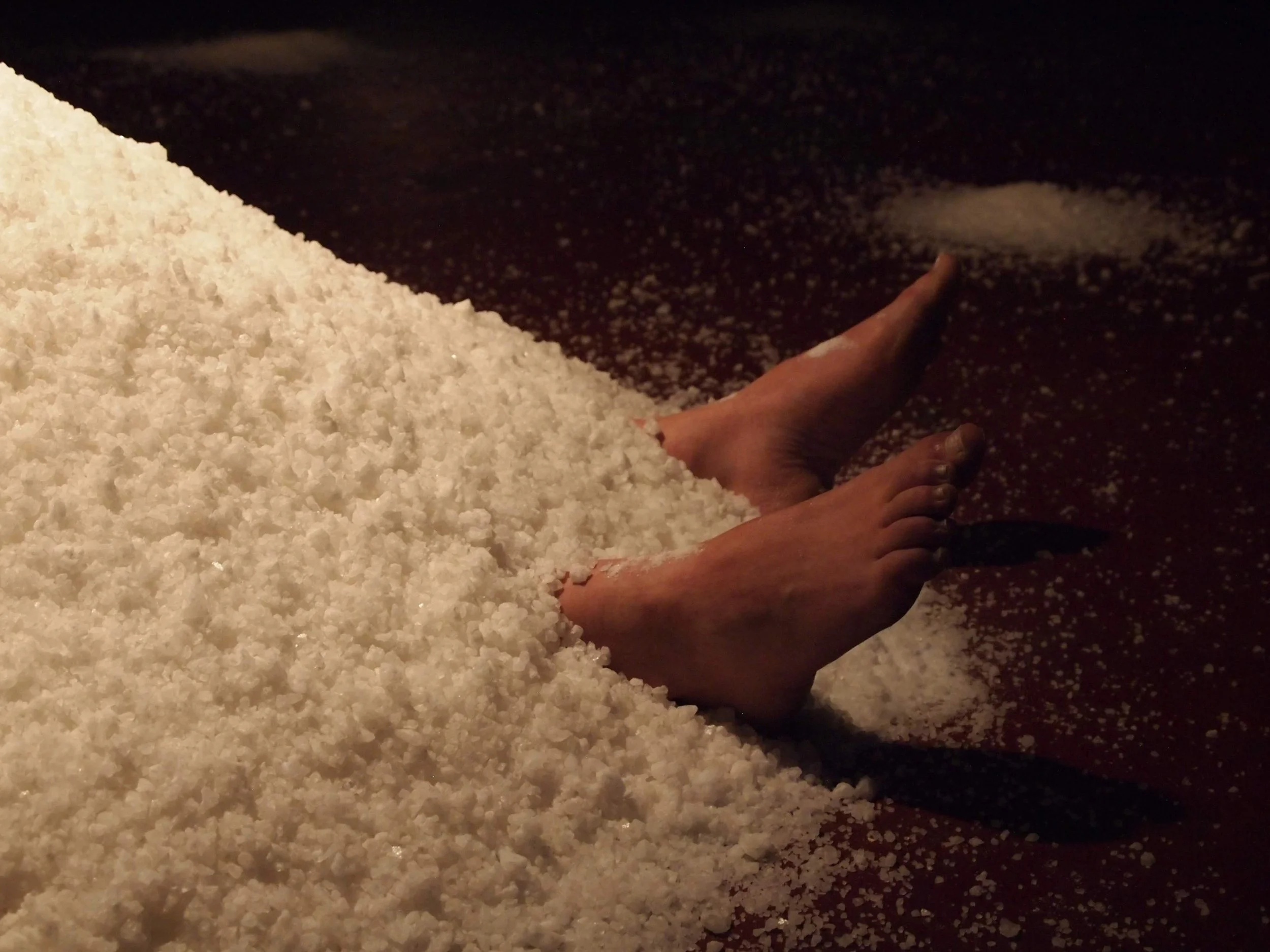slow, deep
Slow, Deep
3 hour performance, commissioned by FLUX Factory in Hunter’s Point Park, Long Island City, NY November 2022
Materials: White cotton clothesline, 150lbs Long Island sand (mined 32 miles east), 20lbs food-grade corn starch, Common Tussock sedge seeds, 52 steel cotter pins.
CoRncrete biodegradable building material produced in collaboration with team at TU Delft.*
Hunter’s Point is an inhabited edge. It straddles polarities - existing as both boundary and convergence, line and point, intersection and slippage. It is defined by its dynamic liminality, mediating larger, cyclical exchanges between land and water. As a form of embodied archival practice, I unearth the site’s history - from Lenape territory to Dutch cornfields to industrial wasteland, to parkland surrounded by high-rise developments.
(Re)introducing intimacy between the site’s human inhabitants and the now long-distrusted waterways of the East River and Newtown Creek, SLOW/DEEP attempts to initiate a reparation. Over 3 hours, I drag 63 bricks from my waist by white cloth lines, tracing the edge path. Every 50 feet I cast a brick into the water, untie the cloth end from my waist, and stake it into soil. Each brick was cast from a mold of a brick reclaimed near the site.
Made of fully-compostable CoRncrete, the bricks are impregnated with native sedge seeds which aid in estuarine restoration. Their materiality presents a generative irony which undermines the brick’s symbolic violence and rewrites the relationship between builder, building, and place. Aided by the curious tugs of the public, the bricks will disintegrate on the river bottom over the month. Do the lines lead to hook, rock, anchor, ankle? Or to water? Existing solely to deconstruct, the brick leaves only one trace: a white cloth, floating to the surface, softly discolored, tying up the edge. Performance was commissioned by New York-based arts organization FLUX Factory.
*CoRncrete is a novel material using corn starch as a binder and sand as filler. It is rapidly hardening and gains strength by heating at a relatively low temperature (<=200 C). CoRncrete has a compressive strength of up to 26 MPa, and it is biodegradable and lightweight compared to traditional concrete and brick.
Photography courtesy of Amalya Megerman.












